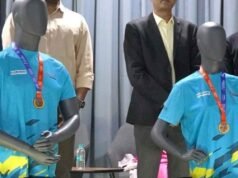Would you want to know when you will die? Science could be getting closer to perhaps giving you that option.
The latest advance? An artificial intelligence algorithm, dubbed “the doom calculator” by the U.K.’s Daily Mailpredicted whether people would die within four years in more than 75% of the cases.
Details about the project, conducted by researchers in Denmark and the U.S., were published this week in the Nature Computational Science online journal. They created an AI machine-learning transformer model – somewhat akin to ChatGPT – although people can’t interact with it as they do with ChatGPT.
But the model, called life2vec, crunched data – age, health, education, jobs, income and other life events – on more than 6 million people from Denmark supplied by the country’s government, which collaborated on the research.
The model was taught to assimilate information about people’s lives in sentences such as “In September 2012, Francisco received 20,000 Danish kroner as a guard at a castle in Elsinore.” Or, “During her third year at secondary boarding school, Hermione followed five elective classes,” the researchers wrote in the research paper.
As life2vec evolved it became capable of building “individual human life trajectories,” they wrote.
“The whole story of a human life, in a way, can also be thought of as a giant long sentence of the many things that can happen to a person,” the paper’s author, Sune Lehmann, a professor of networks and complexity science at the Technical University of Denmark, said in Northeastern Global Newsa university news site. Lehmann was previously a postdoctoral fellow at Northeastern. A collaborator, Tina Eliassi-Rad, is a professor of computer science at the university in Boston.

Personal data:Is it smart to hand over your email address and phone number for discounts?
Accurately predicting death 78 percent of the time
Eventually, the AI construct was able to correctly predict those who had died by 2020 about 78% of the time, researchers say in the report.
None of the study participants were told their death predictions.
“That would be very irresponsible,” Lehmann told the New York Post
Some factors associated with earlier deaths were having a mental health diagnosis, being male, or having a skilled profession, The Science Times reported. Having a leadership role at work and a higher income were associated with longer lifespans.
The program could predict personalities and decisions to make international moves, Lehmann told the Post. “This model can predict almost anything,” he said.
When can I plug my data into the doom calculator?
Not anytime soon. The program and its data are not being made public to protect the privacy of those whose information was used.
“We are actively working on ways to share some of the results more openly, but this requires further research to be done in a way that can guarantee the privacy of the people in the study,’ Lehmann told the Daily Mail.
And its predictive power might not translate beyond Denmark, Eliassi-Rad told the Northeastern Global News. “This kind of tool is like an observatory of society – and not all societies,” she said. “Whether this can be done in America is a different story.”
Regardless, tools such as life2vec should be used to track societal trends, not predict individuals’ outcomes, Eliassi-Rad said.
“Even though we’re using prediction to evaluate how good these models are, the tool shouldn’t be used for prediction on real people,” she told the university news site. Real people “have hearts and minds.”
Lehmann hopes the project will shed light on the development of AI and what should be predicted, he told the university news site.
“I don’t have those answers, but it’s high time we start the conversation because what we know is that detailed prediction about human lives is already happening,” he said. “And right now there is no conversation and it’s happening behind closed doors.”
A tough decision awaits: Will you want to know when and what you may die of?
AI’s involvement in death prediction is “the start of a very complicated road,” said Art Caplan, a professor and founding head of the division of bioethics at New York University Langone Medical Center in New York City.Other scientists are working on using blood and other physical and medical features to make predictive forecasts, too, and the insurance business is built on prediction. “What’s unique (here) is it’s using social employment and public record information, in combination with health information, to make predictions and never having met anybody in the study,” he said.
Caplan says it’s “inevitable” that consumers will be able to get information on their own forecasts. “There are going to be a lot of fights around, let’s call it ‘death prediction’ and battles over third-party access (to it),” he said.
Beyond that is a bigger issue: “These algorithms are starting to take away things we normally don’t know,” Caplan said. “It has upside and could prevent deaths, but it’s got a real existential threat of taking all the unknowns out of life, which is not necessarily a good thing.”
Follow Mike Snider on X and Threads: @mikesnider & mikegsnider.
What’s everyone talking about? Sign up for our trending newsletter to get the latest news of the day







